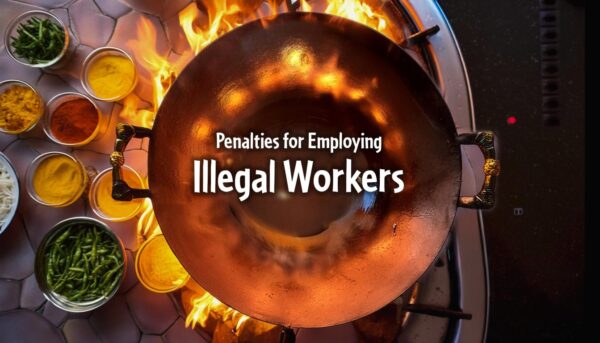Latest Posts

Visa Sponsorship for Creative Workers
If you’re looking to employ individuals in the UK’s creative industry—such as artists, dancers, musicians, and actors—they must apply for a Creative Worker visa. To hire talent through this scheme, your organisation must hold a sponsor licence.
Sponsor licences, granted by the Home Office, enable UK-based organisations to employ non-UK resident workers on either a temporary or permanent basis (see our earlier related article here). We assist organisations through the sometimes challenging process of obtaining a sponsor licence, offering comprehensive support from start to finish. Additionally, we provide ongoing licence management to ensure your organisation remains compliant with all requirements.
If you operate in the UK’s creative sector and wish to employ a non-UK resident, consider the following:
1. Does The Role Fall Within The Appendix Creative Worker Codes of Practice?
- Eligibility: The Home Office has a list of eligible roles in the Appendix Creative Worker Codes of Practice. If the role you want to fill is listed, you must adhere to the instructions under each relevant code and document every step. Compliance is crucial, as the Home Office may audit your business, and non-compliance could result in the revocation of your sponsor licence.
- Instructions: Each code details the appropriate salary rate, advertising requirements to demonstrate local recruitment efforts, exemptions from advertisement requirements, and other specific conditions for each role.
2. What If The Role Does Not Fall Within The Codes of Practice?
If the role isn’t listed in the Codes of Practice, you must meet two conditions:
- Skilled Occupations: The role must correspond to a code listed in the Appendix Skilled Occupations.
- Unique Contribution: You must demonstrate that both the individual and the role will make a unique contribution to the UK’s creative life.
3. Sponsoring Technical or Support Staff
Creative Workers often require their technical or support staff, known as ‘entourage,’ to accompany them to the UK. You can sponsor these individuals if their employment is directly related to the Creative Worker’s activities in the UK. However, not all entourage members are eligible, and certain restrictions apply.
4. Assigning The Certificate of Sponsorship (COS)
When assigning a CoS to a Creative Worker, remember the extra step of confirming compliance with the relevant creative code of practice (if applicable) or detailing how the worker will uniquely contribute to the UK’s creative life. There’s a 250-word limit for this confirmation, but you can provide additional information in a Sponsor’s note to ensure sufficient detail is provided.
Conclusion
By adhering to these guidelines, you can successfully navigate the process of hiring non-UK resident creative professionals, ensuring compliance and fostering talent within your organisation.
If you or your connections require legal advice, please contact Jayesh Jethwa or fill out our enquiry form below.

Navigating the Innovator Founder Visa Route
In our analysis of the Innovator Founder visa route, we explore the essential elements outlined in the factsheet issued on 06 July 2023. This visa pathway is designed to attract entrepreneurs with innovative business ideas to establish ventures in the UK. Our examination provides clarity on eligibility requirements, endorsement procedures, settlement provisions, and considerations for dependants.
Eligibility and Points-Based Assessment
Applicants for the Innovator Founder visa must meet stringent criteria, including accumulating a minimum of 70 points across specified categories. Notably, 50 points must be obtained from either the ‘New Business’ or ‘Same Business’ criteria. These assessments evaluate factors such as the innovativeness, viability, and scalability of the business venture, the applicant’s management role, and proficiency in English. Financial requirements mandate accessible funds of at least £1,270 for applicants with less than 12 months’ stay in the UK.
Immigration Permission and Conditions
The Innovator Founder visa allows a maximum stay of three years per application, with potential pathways to settlement in the UK. Visa holders can work in the endorsed business and pursue employment or studies at a skill level equivalent to or above A-levels, fostering economic contributions and entrepreneurship.
Endorsing Bodies and Criteria
Endorsement from an approved body is pivotal for visa application under this route. These bodies assess the progress and compliance of migrant entrepreneurs, with criteria varying based on whether applicants are pursuing new ventures or continuing with existing ones. Endorsement must precede visa application, necessitating timely coordination.
Genuineness and Suitability
The Home Office retains the authority to assess applicants’ genuineness and compliance. A balance of probability test may be conducted if doubts arise, emphasising the importance of transparency and adherence to visa requirements.
Settlement Provisions
Applicants seeking settlement must meet specific criteria, including sustaining the business for at least 12 months, demonstrating active involvement, and fulfilling financial benchmarks or job creation targets. Settlement requirements emphasise the business’s contribution to the UK economy and its ability to generate sustainable growth and employment.
Dependants
Dependants are eligible for accompanying or joining visas, subject to meeting financial and suitability criteria. Settlement options are available after completing a continuous period as the Innovator Founder’s dependant and meeting residency and integration criteria.
Conclusion
Understanding and adhering to the requirements outlined in the Innovator Founder visa factsheet are essential for prospective applicants to navigate the process successfully. This visa route offers promising opportunities for entrepreneurs to contribute to the UK’s entrepreneurial landscape while ensuring compliance with immigration regulations.
If you or your connections require legal advice, please contact Jayesh Jethwa or fill out our enquiry form below.

Penalties for Employing Illegal Workers: Restaurant Manager Faces a 7-Year Ban
In a recent case highlighting the severe consequences of non-compliance with immigration laws, Ikbal Hussain, the proprietor of Taste of Raj, an Indian restaurant in Hertfordshire, has been issued a seven-year ban on serving as a company director. This sanction arises from his employment of three undocumented workers from Bangladesh, uncovered during a raid by Immigration Enforcement officers in 2020.
Hussain’s failure to conduct mandatory right-to-work checks facilitated the illegal employment, breaching the Immigration, Asylum, and Nationality Act 2006. Such misconduct not only contravenes legal statutes but also undermines the integrity expected of company directors.
Kevin Read, Chief Investigator at the Insolvency Service, has underscored the gravity of the violation, highlighting its detrimental implications. Additionally, Suran Padiachie from the Home Office Immigration Enforcement has reiterated the commitment to combating illegal employment practices, affirming a collaborative approach with agencies such as the Insolvency Service.
The severity of the penalty serves as a caution to business proprietors, as maintaining legal compliance not only protects against exploitation but also ensures equitable opportunities for lawful workers and enhances public confidence.
The case of Ikbal Hussain underscores the repercussions of non-compliance with immigration laws and the responsibility expected from individuals in positions of corporate leadership. As enforcement measures escalate, adherence remains crucial for businesses operating within the UK legal framework.
If you or your connections require legal advice, please contact Jayesh Jethwa or fill out our enquiry form below.